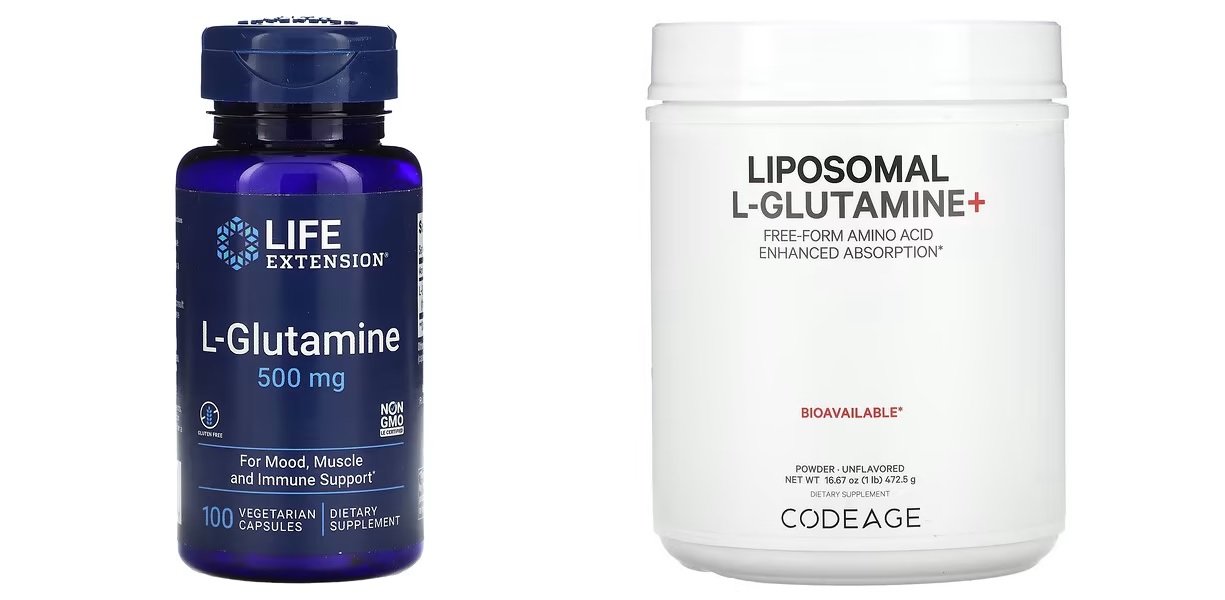Blog

Title: The Hunger-Reducing Powers of L-Glutamine
Introduction:
Maintaining a healthy diet and managing hunger pangs can be challenging, especially for individuals striving to lose weight or control their eating habits. While there is no magic pill for curbing hunger, certain natural compounds have shown promise in assisting with appetite control. L-glutamine, an amino acid found abundantly in the body, is gaining attention for its potential hunger-curbing effects. In this article, we explore how L-glutamine may help in curbing hunger and supporting weight management.
What is L-Glutamine?
L-glutamine is a non-essential amino acid, meaning that our bodies can produce it naturally. It plays a crucial role in various bodily functions, such as protein synthesis, immune system support, and gut health maintenance. L-glutamine is found in abundance in protein-rich foods, including meat, fish, dairy, beans, and legumes.
Regulating Hunger:
L-glutamine's ability to curb hunger lies in its influence on neurotransmitters, specifically the ones involved in appetite regulation. One such neurotransmitter is glutamate, which is converted from L-glutamine in the brain. Glutamate acts as a signaling molecule and is involved in regulating satiety and hunger. By increasing glutamate levels, L-glutamine may help reduce appetite and promote a feeling of fullness.
Supporting Gut Health:
Another mechanism through which L-glutamine may help control hunger is by supporting gut health. The gut is home to trillions of microorganisms that play a crucial role in digestion and overall well-being. When the gut is imbalanced, it can lead to increased hunger and cravings. L-glutamine acts as a source of fuel for the cells lining the gut and helps maintain the integrity of the intestinal barrier. By supporting gut health, L-glutamine may indirectly contribute to reduced hunger and improved appetite control.
Stress and Emotional Eating:
Stress and emotional factors can greatly influence our eating habits. When faced with stress, many individuals turn to food for comfort, leading to emotional eating. L-glutamine may play a role in managing stress and reducing the likelihood of turning to food for emotional support. It is a precursor to the neurotransmitter gamma-aminobutyric acid (GABA), which helps calm the nervous system and promote relaxation. By supporting GABA production, L-glutamine may help manage stress and prevent emotional eating episodes.
Incorporating L-Glutamine:
If you're interested in harnessing the potential hunger-curbing effects of L-glutamine, there are several ways to incorporate it into your diet. You can increase your intake of L-glutamine-rich foods like meat, fish, dairy products, legumes, and beans. Additionally, L-glutamine supplements are available in powder or capsule form, allowing for targeted and convenient consumption. However, it's always advisable to consult with a healthcare professional before starting any new supplements.
Conclusion:
While L-glutamine is not a magical hunger-curbing solution, it holds promise as a natural aid for appetite control. Its influence on neurotransmitters involved in hunger regulation, support for gut health, and potential stress management benefits suggest that L-glutamine may play a role in curbing hunger and promoting a healthier relationship with food. As with any dietary changes, it's essential to maintain a balanced diet and lifestyle that includes regular physical activity for overall well-being and weight management.

Comments (0)